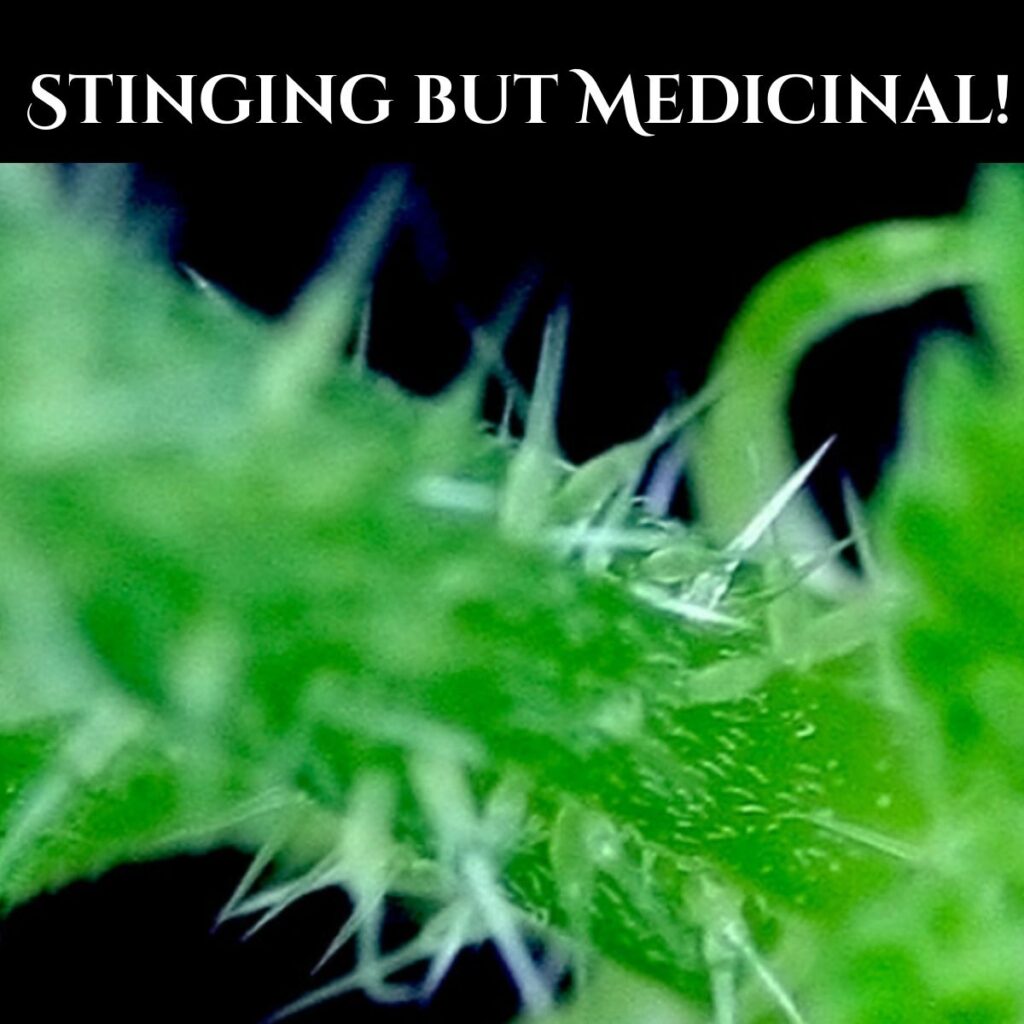Stinging Nettle (Urtica dioica) is a herbaceous plant, originally from Europe, Asia and North Africa, but now spread worldwide.
Despite the fact that it has irritating stings, it is an important plant in herbal medicine, and also has a long history for use as a food, beverage and tea.
Various parts of the Nettle plant have multiple uses: stems yield fibers used in textiles and rope, leaves and roots are sources of green dyes, young shoots are edible and used in soups or teas, and the plant is utilized as fodder, compost, and even as a natural pesticide. Seeds can be used for oil, while the high nutritional value of the leaves supports their use in both human and animal diets.
When the stinging nettle stings, it has little hairs on its leaves and stems (called trichomes) that inject histamine and other substances causing a painful sting on contact.
It is this same stinging property that is responsible for one of the medicinal uses of Nettles!
For arthritis or rheumatism, traditionally the nettle has been allowed to deliberately sting areas on the body affected by the arthritis, and this causes the inflammation (a rubefacient), which is believed to improve the pain and circulation to the area of the body.
In more modern uses, we are finding that preparations of nettle taken orally or topically (without the stinging) might improve symptoms osteoarthritis.
Other areas for which Nettles are used as an herbal medicine, and also have been clinically studied include hayfever, benign prostatic hyperplasia (BPH), as a diuretic, gingivitis, hyperandrogenism, and diabetes.
Nettles are also mineral-rich, and including vitamins and antioxidants. The leaves also have a high amount of alpha-linolenic acid, and about 5% protein. For this reason it is used as a nutritive herbal for skin, nails, and hair health.
When Nettles are harvested and cooked, soaked in water, or dried, there are no dangerous stingers present any longer, and they can be consumed safely.
This is how Nettles are enjoyed as a food, tea or herbal medicine.
Through scientific investigation, Nettles have been found to exhibit a wide range of pharmacological activities, including antioxidant, anti-inflammatory, analgesic, anti-infectious, hypoglycemic, diuretic, anti-allergic, anti-cancer, antiviral, antiulcer, and hypotensive effects.
An interesting study demonstrated that a lectin isolated from Nettle can inhibit replication of several viruses, including HIV and SARS-CoV, with in vivo experiments in mice showing significant protection against lethal SARS-CoV infection. Another clinical study highlighted the efficacy of Nettle root extract in benign prostatic hyperplasia, while other trials have supported its anti-inflammatory action for rheumatoid arthritis and reducing joint pain.
Stinging but Medicinal!

